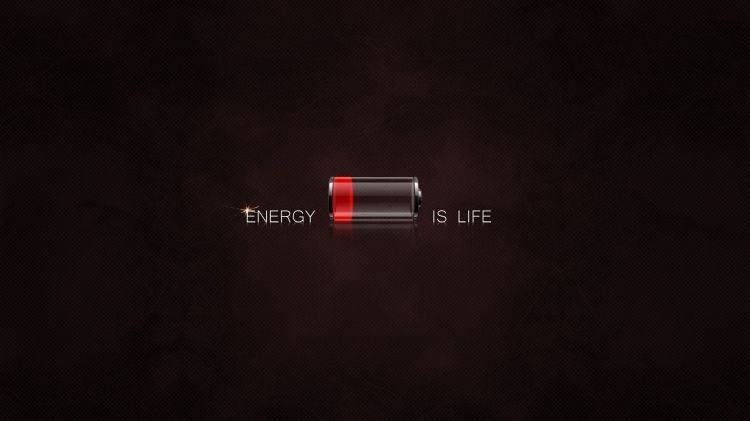How do you deal with 18650 battery in store?
Jul 16, 2019 Pageview:2144
All 18650 batteries need a storage range between -20 ~ +50°C (-4°F ~ + 122°F) or else they will degrade. Also, keeping in mind the maximum temperature for storage should not exceed +60°C (140°F). Always it is better to store in a cold environment, than a warm climate. You must ensure that the optimal temperature should be closer to 25°C (77°F) or lower. The closer you are to the required temperature range, the longer you will be able to store your batteries. If you intend to store your batteries for long, then a storage charge of approximately 50% with a capacity (~3.7V) rather than 100% (4.2V) will prevent faster battery degradation
How long can you store 18650 battery?
For this, I will majorly rely on the specification sheets provided by Panasonic, Samsung, and LG. and I will break down some of the critical factors and the mean considering the storing section of these specification specs.
How to store a Panasonic 18650 B
From the specification sheet, storing conditions for less than one-month temperature range between -20 and +50° C, while for less than three months temperature ranges between -20 and +40°C and less than one-year temperature range between -20 and +20°C. And the recoverable capacity 80%*.
What does this mean? It means there are three rows and each with different storage conditions, and each row represents a recovering 80% of the battery’s usable capacity.
-Storing a 18650 battery for less than a month, then you may need to keep it in a climate as hot as 50°C, and you will be able to recover 2560 mAh.
-And if you want to store a 18650 battery for less than three months, you may keep it in an environment as hot as 40°C and be able to recover 2560 mAh.
-Finally storing a 18650 battery for less than one year, you may keep it in an environment as hot as 20°C and recover 2560 mAh. Besides, storing a lithium battery for one year will result in a 20% drop in capacity, which translates to a 1.6% loss of function per month or 53 mAh.
Storage temperature and conditions
From the above items, heat is the main factor determining that determines the capacity storage and ultimately determines how long you can store your battery. For 18650 batteries can be stored at shallow temperatures, but you will realize that at higher temperatures they will degrade them quickly. You must keep at less than 60°C.
Lithium-ion batteries you must maintain a voltage above 2.5V before they start to breakdown and decompose; therefore, for long term storage, it is good to top-up your batteries when their voltage drops down.
Finally, ensure that the environment is dry, or low humidity-free from the dust or corrosive gas atmosphere. The right climate becomes more vital, and anything above three months may last for a more extended period.
How to Store the Samsung 25R
The storing conditions from the 25R specification sheet, Batteries less than one month -30 and +60° C, while those with less than three months their temperatures range between -30 ~and+45°C, and those with less than 1.5 years have their temperatures range between -30 and +25°C.
The Samsung 25R performs well during storage on all fronts. You can store at ten degrees lower than the 18650B. While the higher temperatures difference favors 25R from one month, three months, to 1.5 years is +10°C, +5°C, +5°C.
For long-time storage, the voltage should, rather than be fully charged and set at a lower optimal voltage, thus Preventing the degrading of performance characteristics.
Storing LG 18650 HE2
Some of the storing conditions from the specification sheet are as follows. Batteries with less than one-month temperatures range from -20 ~ +60°C, less than three months -20 ~ +45°C, and less than one year -20 ~ +25°C.
Storing 18650 batteries is very vital as cells becoming unstable enough and exploding in storage is possible. And it could be due to static, pressure, or temperature.
What happen to 18650 battery after a long time storage
All 18650 batteries, when stored at a low temperature, will improve the shelf time. However, most manufacturers generally don't recommend storing batteries in the refrigerator, mainly because condensation might occur when you remove the battery from the fridge. For instance, if the cells get wet during storage, the rate of discharge is high, and the battery might form a conductive path between the terminals. Freezing can also damage water-based batteries due to the expansion of the electrolyte.
Lithium-ion batteries have a low self- discharge rate; this enhances the possibility of the cell stored for four years will still be useful. However, they usually degrade over time, especially if stored fully charged. There will be probably some capacity loss. While some battery has built-in monitoring circuitry that majorly consumes charge and thus results in a higher overall discharge rate. And if the battery discharges fully, it might be permanently damaged. It is usually recommended to store Lithium-ion batteries at about a 40-50% charge rate to reduce degradation while leaving some room for self-discharge.
How do you deal with 1860 battery after long time storage?
In today’s it doesn’t take much time to learn what can help to preserve the current charge on the battery and more so how to take care of them in the long run. Here are some of the few ways to keep your lithium-ion battery after a long time of storage.
Keep your battery at room temperature
it means that you must store your battery at temperatures between 20 and 25 degrees Celsius. Avoid elevated temperatures.
Allow partial discharge and avoid fully charged ones
Allow lithium-ion battery to almost completely discharge. Or let the battery discharge completely and recharge.
Avoid completely discharging lithium-ion batteries
For safety reasons, do not recharge deeply, discharge lithium-ion batteries if stored for several months? If a lithium battery discharges below 2.5 v, the battery appears to be dead.
Ensure that you release your lithium-ion battery to about 40 percent and then store it in a cool place
It means oxidation of lithium-ion is at its highest rate.
- Prev Article: DIY lithium batteries: how to build your own battery packs
- Next Article: How long does it take to charge 18650 battery?
Leave Message
Hottest Categories
-
Hottest Industry News
-
Latest Industry News















